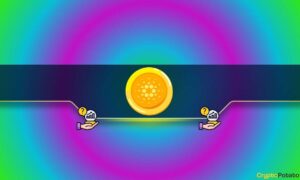Orbler, known for its innovative approach to integrating Web3 technologies with traditional marketing strategies, has announced a significant partnership with Nexa Fusion. This collaboration is poised to merge cutting-edge artificial intelligence (AI) with blockchain technology, heralding a new era of digital marketing solutions.
Orbler has established itself as a bridge between conventional Web2 audiences and the burgeoning Web3 space. The platform is designed to engage users through various missions and community-driven activities, enhancing interaction while also allowing for staking mechanisms that reward participants.
With its latest move, Orbler is expanding its reach into the AI sector by partnering with Nexa Fusion, a pioneering Layer 2 blockchain focused on the creation and monetization of AI-driven applications.
📣 Announcing the Future with NexaFusion, Orbler’s Latest Partner! ⭐️
Orbler is teaming up with @NexaFusion, a cutting-edge Layer 2 blockchain revolutionizing AI creation and monetization. Stay tuned for advancements in the AI and blockchain arenas! #Layer2 #Web3 #Bitcoin pic.twitter.com/DUpuLUcLn0— Orbler (@Orbler1) July 22, 2024
Enhancing AI and Blockchain Synergy
Nexa Fusion has been at the forefront of developing AI solutions that are both innovative and monetizable, making them a fitting partner for Orbler’s expansive Web3 ecosystem.
This partnership is expected to drive significant advancements in how AI technologies are implemented within blockchain frameworks, potentially transforming a range of industries from digital marketing to decentralized finance (DeFi).
The integration between Orbler and Nexa Fusion will allow both platforms to leverage their respective strengths. Nexa Fusion’s AI expertise can enhance Orbler’s mission-based engagement strategies, offering more personalized and efficient interactions. Simultaneously,
Orbler’s robust community-oriented features will provide a fertile ground for Nexa Fusion to introduce its AI services to a broader, engaged audience eager to explore new technologies.
Read the full article here









